The Edger station was the first steam electric plant produced that could tolerate over 1000 psi of pressure. Initially conceived by Mr. Irving Edwin Moultrop, then Assistant Superintendent, Construction Bureau of the Edison Electric Illuminating Company of Boston. He guided his company and the electric utility industry on a major step forward into the higher-pressure range of 1,200 psi steam.
Steam
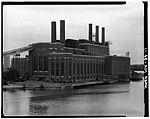
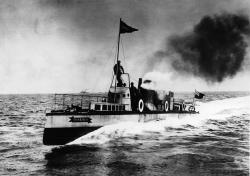
The Turbinia was the world's first turbine-driven ship. It attracted worldwide attention at the 1897 Spithead Naval Review by traveling more than 34 knots. This remarkable performance accelerated the acceptance of the steam turbine as an alternative to the steam reciprocating engine on ships as well as for central electric light and power stations. Sir Charles A. Parsons (1854-1931) invented (1884), developed, and promoted the steam turbine, as well as the design of the Turbinia. For this, he is considered among the outstanding technological innovators of all time.

The two 3,500-hp steeple compound Unaflow steam engines powering the S.S. Badger represent one of the last types of reciprocating marine steam engines. Built by the Skinner Engine Company, most Unaflow engines are single expansion. These feature tandem high- and low-pressure cylinders separated by a common head. The Badger's four Foster-Wheeler Type D marine boilers, which supply 470-psig steam to the engines, are among the last coal-fired marine boilers built.
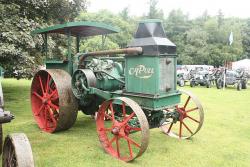
Beginning with the blacksmith shop of German immigrant Meinrad Rumely (1823-1904), this successive family of firms invented and produced a line of agricultural equipment that played a vital role in the evolution of farming based on the muscle of humans and animals to one based on the power of the steam and ultimately the internal-combustion engine. The M. & J. Rumely Co. became the M. Rumely Co., and then the Advance Rumely Co. The Allis-Chalmers Company acquired the business in 1931.

Steam and the inexpensive electricity it could produce brought about dramatic technical growth in the United States. Developed during the last century, reliable and efficient steam engines were the forerunners of today's massive generating facilities. A rare survivor of the period, the Pratt facility is the oldest generating plant of its kind in the Northeast and embodies the typical features of engines in a row, open-front marble switchboard, and an observation balcony at street level.
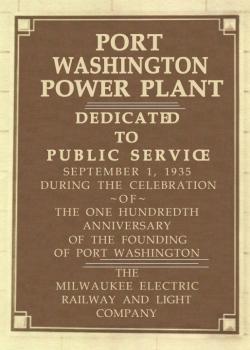
The Port Washington Power Plant of the Wisconsin Electric Company was the most thermally efficient steam power plant in the world for many years following its opening in 1935. Its design reflected the cumulative experience of the utility's engineers in burning pulverized coal at the Oneida Street Plant and the Lakeside Station in Milwaukee.

After an initial difficulty in attracting customers (who were used to getting their water from public pumps and private wells and cisterns), Philadelphia's waterworks soon couldn't keep up with demand. John Davis and Frederick Graff designed a complete remodeling of the system in 1811 so that it could supply the city's growing needs.

At the mountain where the Civil War's Battle Above the Clouds was waged, tourist business has thrived from the building of its first toll road (Whiteside Pike) in 1857 to present day.


This ironworks exemplified the adaptability required for industrial survival in a dynamic technical environment. It was a major western producer of mechanical equipment used in mining (especially large hydraulic machines), ship propulsion, irrigation, power generation, optical telescope mounts, and nuclear research.
Innovations
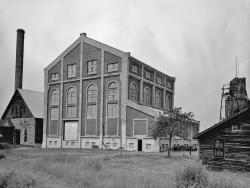
The largest mine hoist in the world, it serves the two incline skipways of Shaft No. 2, almost 9,300 feet long. The overhead winding drum has a diameter of 30 feet, of which the cylindrical center section is 10 feet long. The two 10-foot long end sections taper down to a 15-foot diameter. Wire…
Read More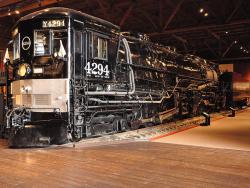
The articulated wheel-base steam locomotive represents the final phase of steam locomotive development in size and power. The cab-in-front feature was widely used by the Southern Pacific Railroad beginning in 1909 to alleviate smoke and heat problems for locomotive personnel en route through…
Read More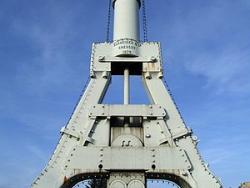
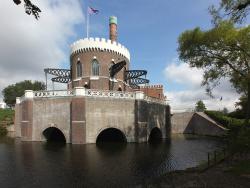
This is one of three nearly identical pumping stations that drained the Haarlemmermeer (Haarlem Lake), 1849- 52, then continued to maintain the polder's water table for more than 80 years. The Haarlemmermeer area covers 45,000 acres (about 70 square miles) in a triangular region between the…
Read More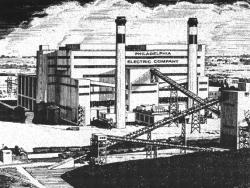
Operated by the Philadelphia Electric Company (PECO), now known as Exelon Corp., Eddystone Station Unit #1 is a 325 MW pulverized-coal-fired plant that pushed the technology of steam-electric generating plants. When built in 1960, engineers sought to make a more efficient plant using higher…
Read More
This dynamo, connected directly to a high-speed steam engine, was one of six that produced direct current at Thomas A. Edison's electric power station at 257 Pearl Street in New York City. The Pearl Street Station was the prototype for central station power generation. Edison set out in 1878 to…
Read More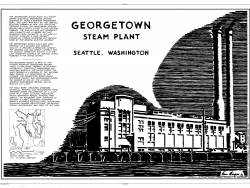
The Georgetown Steam Plant, a surprisingly complete and operable steam power plant after a career of nearly seventy-five years, was built in the early 1900s when Seattle's inexpensive hydroelectric power attracted manufacturers. Much of the power produced at this plant operated the streetcars.…
Read More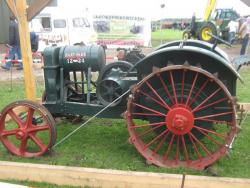

This ironworks exemplified the adaptability required for industrial survival in a dynamic technical environment. It was a major western producer of mechanical equipment used in mining (especially large hydraulic machines), ship propulsion, irrigation, power generation, optical telescope mounts,…
Read More
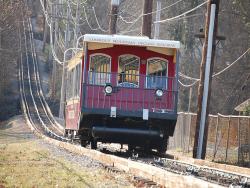
At the mountain where the Civil War's Battle Above the Clouds was waged, tourist business has thrived from the building of its first toll road (Whiteside Pike) in 1857 to present day.
More than 75,000 tourists a year were visiting the site when the war interceded. Tourism was not…
Read More
After an initial difficulty in attracting customers (who were used to getting their water from public pumps and private wells and cisterns), Philadelphia's waterworks soon couldn't keep up with demand. John Davis and Frederick Graff designed a complete remodeling of the system in 1811 so that it…
Read More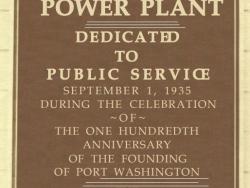
The Port Washington Power Plant of the Wisconsin Electric Company was the most thermally efficient steam power plant in the world for many years following its opening in 1935. Its design reflected the cumulative experience of the utility's engineers in burning pulverized coal at the Oneida…
Read More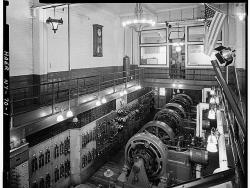
Steam and the inexpensive electricity it could produce brought about dramatic technical growth in the United States. Developed during the last century, reliable and efficient steam engines were the forerunners of today's massive generating facilities. A rare survivor of the period, the Pratt…
Read More
Beginning with the blacksmith shop of German immigrant Meinrad Rumely (1823-1904), this successive family of firms invented and produced a line of agricultural equipment that played a vital role in the evolution of farming based on the muscle of humans and animals to one based on the power of…
Read More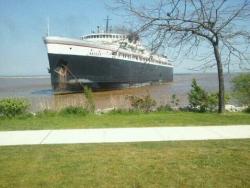
The two 3,500-hp steeple compound Unaflow steam engines powering the S.S. Badger represent one of the last types of reciprocating marine steam engines. Built by the Skinner Engine Company, most Unaflow engines are single expansion. These feature tandem high- and low-pressure cylinders separated…
Read More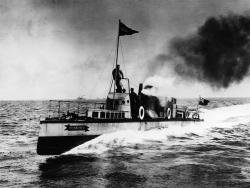
The Turbinia was the world's first turbine-driven ship. It attracted worldwide attention at the 1897 Spithead Naval Review by traveling more than 34 knots. This remarkable performance accelerated the acceptance of the steam turbine as an alternative to the steam reciprocating engine on ships as…
Read More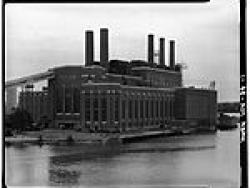
The Edger station was the first steam electric plant produced that could tolerate over 1000 psi of pressure. Initially conceived by Mr. Irving Edwin Moultrop, then Assistant Superintendent, Construction Bureau of the Edison Electric Illuminating Company of Boston. He guided his company and the…
Read More

